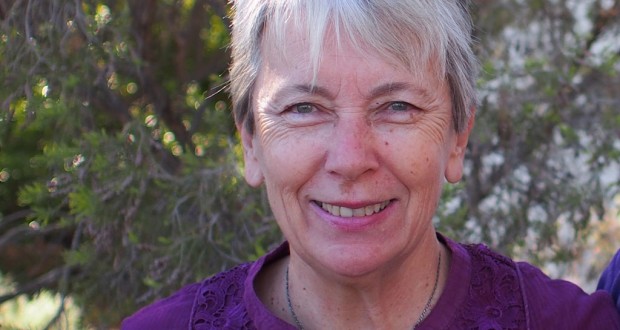Rev Jenny Coombes, minister at Longreach Uniting Church writes for International Women’s Day.
How long have you been involved/connected to the church?
I have been connected with the church since I was a child at Sunday School. As I grew up I started teaching Sunday school—that and playing piano for services were my main connection initially.
What inspired you to pursue a career as a minister?
I became involved in worship leading in a country town. At that point I was a maths science teacher working in a Catholic school and gradually the call on my time from church became more and more. I eventually realised I had to walk away from something, as I couldn’t continue doing everything.
Working through a Period of Discernment helped me decide to move into study and offer myself as a candidate for ministry. After discussions with my presbytery minister, I ended up becoming a pastor working part-time in the church and studying part-time. Eventually, the initial call to ordained ministry returned and with a little more discernment through a retreat day, I made the decision to formally candidate for Minister of the Word.
How would you spend a typical day?
A typical day—what’s that? Usually I look at my dairy and if it looks like a fairly clear week, you can guarantee something will go pear-shaped. I live in a country town, so involvement in the community is a priority to network and get to know people and develop a general feel for how things are going.
That has been pretty important as our district has been in drought for at least six years. It is not one of the areas that has been flooded; they lie just to the north of here. So recently there have been some very mixed feelings amongst people as they struggle to deal with the drought—whilst feeling for the devastation of the people in the floods, often involving friends or family.
I teach RI, which is a delight. You never know what the young ones will come up with in our discussions.
Synod Chaplaincy Committee, Minsters Association, Community Advisory Group for the local hospital, work associated with PRC, and of course drought relief work.
This involves advocating for the community with government bodies, applying for funds and working with other groups to administer funds that come, either directly through the church or through the Western Queensland Drought Committee. A lot of my contact with people on properties is done by phone or email rather than visiting as the distances are too great to be covered and still allow me to actually be the minister at the local church as well.
You never know whether a phone call will be a quick one or two-minute chat or perhaps an hour of listening to what is going on in their lives. Being a minister in a country area requires you to be a jack-of-all-trades across the life of the church and have a fair understanding of everything going on or that needs to be done.
You become very grateful when people with gifts in areas such as maintenance or cleaning or finance step up and offer their services, as it is getting harder and harder to fulfil all the administration and governance requirements of being church with limited resources.
What are some of the challenges you have experienced?
The heat. Up to 40 degrees Celsius seems fairly normal for most of the summer—when it goes over 40 degrees it is definitely a challenge. I thank God for the donations to be used for building maintenance made soon after my arrival that allowed air-conditioners to be replaced or installed in some of the rooms of the manse.
The drought has taken its toll on the whole community. And helping people through that takes its toll on the ministry agents—including the elders.
Finances are always a challenge, made worse by the drought. Tithing is great when there is an income, but if the income is zero, then so is the tithe.
People in city areas and Brisbane not understanding the logistics of living and working out of the South East corner adds to frustration levels.
Remaining positive in an area which has been impacted by drought for so long—listening to the stories can be quite distressing, and it is no help to anyone if I too succumb to depression due to what is going on around me.
What advice would you give to other women thinking of entering ministry?
If it’s what God is calling you to then just do it, don’t try to avoid the issue. God will get you to listen eventually. If you are married and with children, the support of your spouse is critical and hopefully the understanding of your children will be there as well.
Don’t limit yourself to what you think is feasible—if God is calling you to a place outside your comfort zone, then God will equip you (and your spouse/family) to handle it.
 JourneyOnline
JourneyOnline







